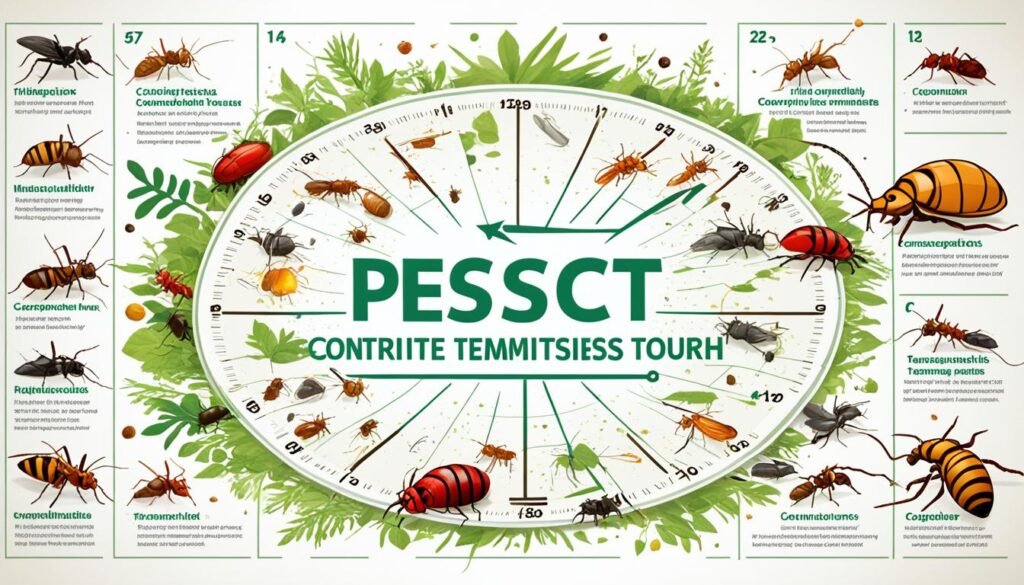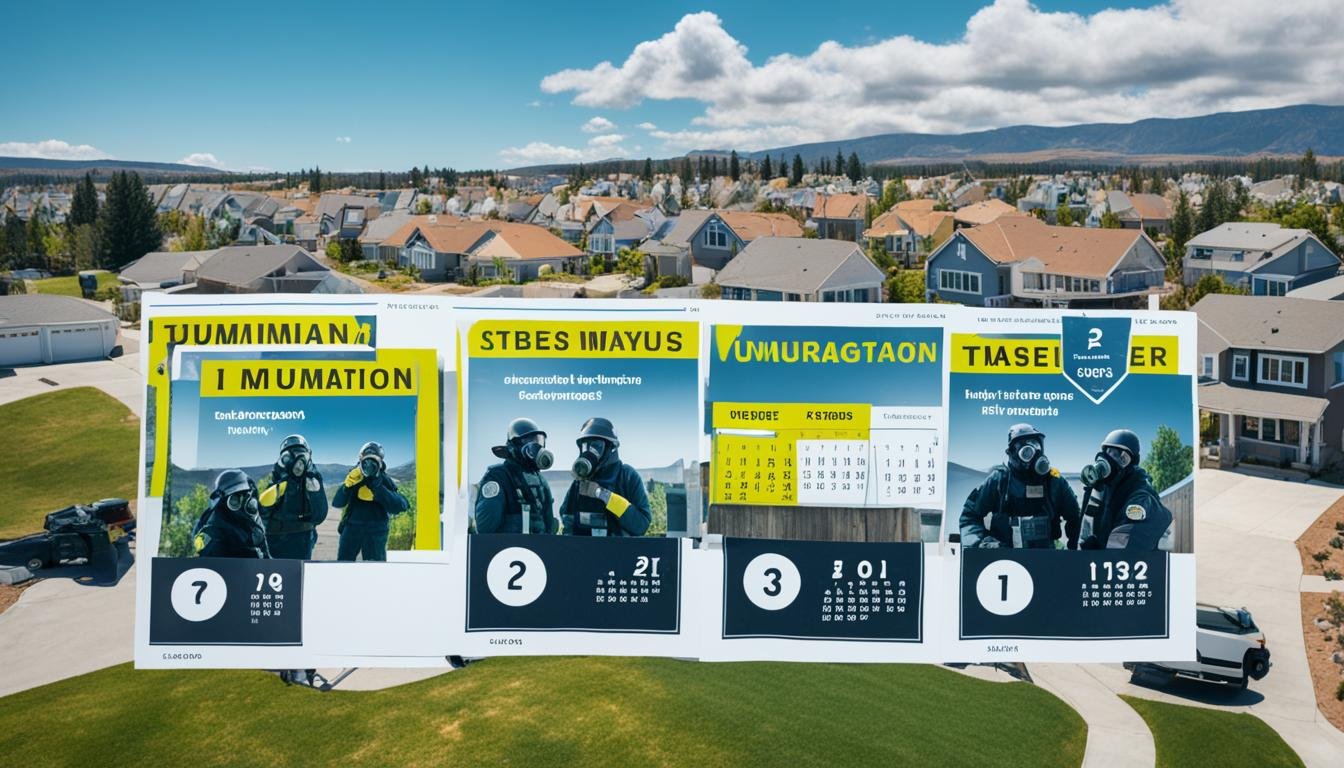Did you know that termites cause an estimated $5 billion in property damage every year in the United States alone? These tiny pests can wreak havoc on your home, causing structural damage that requires costly repairs. That’s why it’s crucial to establish an effective fumigation schedule to keep your property termite-free and protected.
Key Takeaways:
- Structural fumigation for termite control is recommended when infestations are extensive, hard to locate, or difficult to access.
- Annual termite inspections are important to identify signs of infestation and determine the need for fumigation.
- Fumigation does not need to be done yearly or at scheduled intervals after treating active termite colonies.
- Regular pest control and home maintenance activities can help prevent new termite infestations.
- Always consult with a professional pest control service, such as Your Way Fumigation, for personalized fumigation frequency guidance.
How Often Should You Fumigate for Other Pests?
Pest control for pests other than termites should be done at regular intervals to prevent infestations. The effects of pesticides used during fumigation typically last 3 to 4 months, so it is recommended to have your property fumigated quarterly or every 3 months. The frequency of pest control can vary depending on the type of pests, the size and location of your home or office, the severity of the infestation, and the time since the last fumigation. Larger properties or areas with high pest activity may require more frequent pest control. Bugs like ants and cockroaches breed rapidly, so additional fumigations may be necessary to completely eradicate them. Regular pest control services can help identify and treat infestations before they become severe.
Regular pest control services help identify and treat infestations before they become severe.
Table: Comparison of Pest Control Frequency
| Pest Type | Fumigation Frequency |
|---|---|
| Ants | Every 3 months for severe infestations |
| Cockroaches | Every 3 months for severe infestations |
| Bed bugs | Every 2 to 3 weeks until eliminated |
| Spiders | Every 3 to 4 months for prevention |
| Rats and mice | Every 4 to 6 months for prevention |
Why Quarterly Pest Control is Recommended
Regular pest control services every 3 months, or quarterly, is recommended for several reasons. Firstly, it helps safeguard your home or office from pests, reducing the risk of new infestations. Secondly, quarterly treatments can create a barrier against common pests throughout the year, ensuring ongoing protection. Thirdly, bugs like ants and cockroaches breed rapidly, so a more frequent pest control schedule is necessary to completely eradicate them. By adhering to a regular pest management schedule, you can maintain a pest-free environment and enjoy peace of mind.

Benefits of Routine Pest Control
Routine pest control services offer numerous advantages for homeowners. When you enlist the expertise of professional pest control technicians, they can accurately identify the specific pests infesting your property and employ appropriate treatment methods to eliminate them effectively. Engaging in regular pest control can help to prevent extensive damage to your home by addressing infestations in their early stages. By taking proactive measures, you can potentially save significant amounts of money on repair costs and preserve the integrity of your building.
One of the key benefits of routine pest control is its ability to create a protective barrier against common pests throughout the year. With quarterly pest control treatments, you can ensure ongoing protection against unwanted intruders. This approach helps to maintain a pest-free environment and reduces the risk of new infestations.
If you have previously experienced termite infestations, it is particularly crucial to consider an annual Termite Protection Plan. This comprehensive plan ensures long-term prevention and provides you with peace of mind, knowing that your property is safeguarded against destructive termites. By incorporating quarterly pest control into your routine, you can effectively defend your home from various pests, minimizing the likelihood of infestations and maintaining a pest-free living space.

